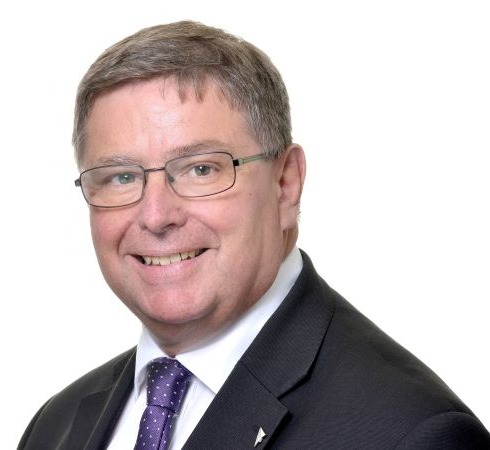Q&A with Iain Gray, Director of Aerospace at Cranfield University.
12/12/2019

With the drive for a more sustainable Aviation Industry, what changes do you foresee in Commercial Aircraft to help realise this vision?
“I think this year has seen the sector recognise and appreciate the significance and the role that aviation and aerospace have to play. In terms of changes, I think there are several elements.
One is on the technology itself; there is an increased focus around electrification, battery technologies, and hydrogen fuels. Which also reinforces the importance on areas like lightweighting with the drive to reduce the weight of aircraft.
But I also think it means that people need to understand a lot more about the overall system in which aerospace operates. This is where Cranfield has a real advantage, students studying aerospace need to understand where aerospace fits in an overall aviation system and where the aviation system fit in an overall environmental context. It isn’t just about being focused around a specific platform design or aircraft design. It’s about understanding how an aircraft and aircraft operations fits into and impacts the environment. How it links with air traffic control, links with the airport, links with other forms of infrastructure. I think that’s how it’s changing, there’s a much bigger emphasis on the overall integrated system level.”
What do you think are some of the most exciting career opportunities that these changes are going to enable graduates of the future to go into?
“In terms of opportunities, again, there are many different opportunities. Some of them perhaps as a direct consequence of the environmental challenges, like the potential for smaller companies that are making electric aircraft or hydrogen-powered aircraft, are going to be looking for graduates in a way that for the last twenty or thirty years they haven’t been.
There are some fantastic opportunities for new graduates to get involved with smaller companies that are looking at products driven by these environmental challenge opportunities. I also think it’s exciting because in the same way as I described earlier, the fact that people now need to understand where they fit within that broader aviation eco-system. I think there will be more mobility, people that have worked in aircraft design will be needed within airports or needed in air traffic control environments. It’s presenting the opportunity for graduates to go up in terms of the eco-system chain. That’s fantastic, that gives a much broader range of career opportunities.”
How do you think Cranfield’s helping to provide graduates with the required skill sets?
“I think Cranfield has a long-standing reputation in its traditional courses and the traditional courses need to adapt to this changing environment but Cranfield is also introducing new subject areas; robotics and applied artificial intelligence being two very good examples of new courses that address new technology requirements that help to develop the kind of skillsets industry are looking for in this new environment.”
To find out more about the range of courses available, visit our website or get in touch.
What advice would you give to an engineer looking to start their career in the Aerospace sector?
“Follow their intuition, do things, be brave, take advantage of some of these exciting opportunities within the sector, consider the large OEMs, Airlines, Airports, SME’s and start-ups there are exciting careers opportunities right across the sector. Do the things you want to do, the opportunities are there to do that in a way they haven’t been for the last two, three decades.”
For further details about our Aerospace offering: https://www.cranfield.ac.uk/themes/aerospace
Categories & Tags:
Leave a comment on this post:
You might also like…
Setting up a shared group folder in a reference manager
Many of our students are now busy working on their group projects. One easy way to share references amongst a group is to set up group folders in a reference manager like Mendeley or Zotero. ...
Company codes – CUSIP, SEDOL, ISIN…. What do they mean and how can you use them in our Library resources?
As you use our many finance resources, you will probably notice unique company identifiers which may be codes or symbols. It is worth spending some time getting to know what these are and which resources ...
Supporting careers in defence through specialist education
As a materials engineer by background, I have always been drawn to fields where technical expertise directly shapes real‑world outcomes. Few sectors exemplify this better than defence. Engineering careers in defence sit at the ...
What being a woman in STEM means to me
STEM is both a way of thinking and a practical toolkit. It sharpens reasoning and equips us to turn ideas into solutions with measurable impact. For me, STEM has never been only about acquiring ...
A woman’s experience in environmental science within defence
When I stepped into the gates of the Defence Academy it was the 30th September 2019. I did not know at the time that this would be the beginning of a long journey as ...
Working on your group project? We can help!
When undertaking a group project, typically you'll need to investigate a topic, decide on a methodology for your investigation, gather and collate information and data, share your findings with each other, and then formally report ...






